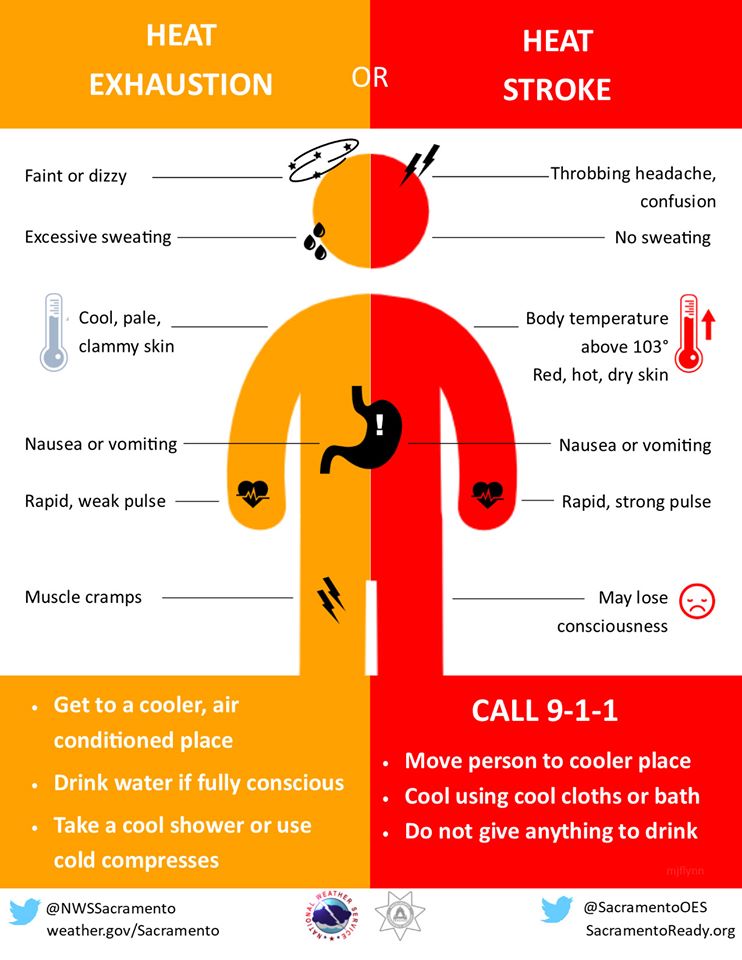It’s is going to be extremely hot, and according to the National Weather Service (NWS) in Jackson, most of the state will experience heat index readings from 100 to 107 degrees.
The NWS says, “During hot and humid weather, your body’s ability to cool itself is challenged. When your body heats too rapidly to cool itself properly, or when too much fluid or salt is lost through dehydration or sweating, you may experience a heat-related illness. Learn the symptoms of excessive heat exposure and appropriate responses.”

Here are the symptoms to be aware of and what you should do in the event you are someone else who seems to be in distress.
HEAT CRAMPS
Heat cramps may be the first sign of heat-related illness and may lead to heat exhaustion or stroke.
Symptoms:
- Painful muscle cramps and spasms usually in legs and abdomen
- Heavy sweating
First Aid:
- Apply firm pressure on cramping muscles or gently massage to relieve spasm.
- Give sips of water unless the person complains of nausea, then stop giving water
HEAT EXAUSTION
Symptoms:
- Heavy sweating
- Weakness
- Cool, pale, clammy skin
- Fast, weak pulse
- Possible muscle cramps
- Dizziness
- Nausea or vomiting
- Fainting
First Aid:
- Move person to a cooler environment
- Lay person down and loosen clothing
- Apply cool, wet cloths to as much of the body as possible
- Fan or move victim to air conditioned room
- Offer sips of water
- If person vomits more than once, seek immediate medical attention
HEAT STROKE
Symptoms:
- Altered mental state
- One or more of the following symptoms: throbbing headache, confusion, nausea, dizziness, shallow breathing
- Body temperature above 103°F
- Hot, red, dry or moist skin
- Rapid and strong pulse
- Faints, loses consciousness
First Aid:
- Heat stroke is a severe medical emergency. Call 911 or get the victim to a hospital immediately. Delay can be fatal.
- Move the victim to a cooler, preferably air-conditioned, environment.
- Reduce body temperature with cool cloths or bath.
- Use fan if heat index temperatures are below the high 90s. A fan can make you hotter at higher temperatures.
- Do NOT give fluids.







